Cruising during hurricane season can be risky but also cheaper and less crowded. It’s important to take precautions for a safe and enjoyable trip.
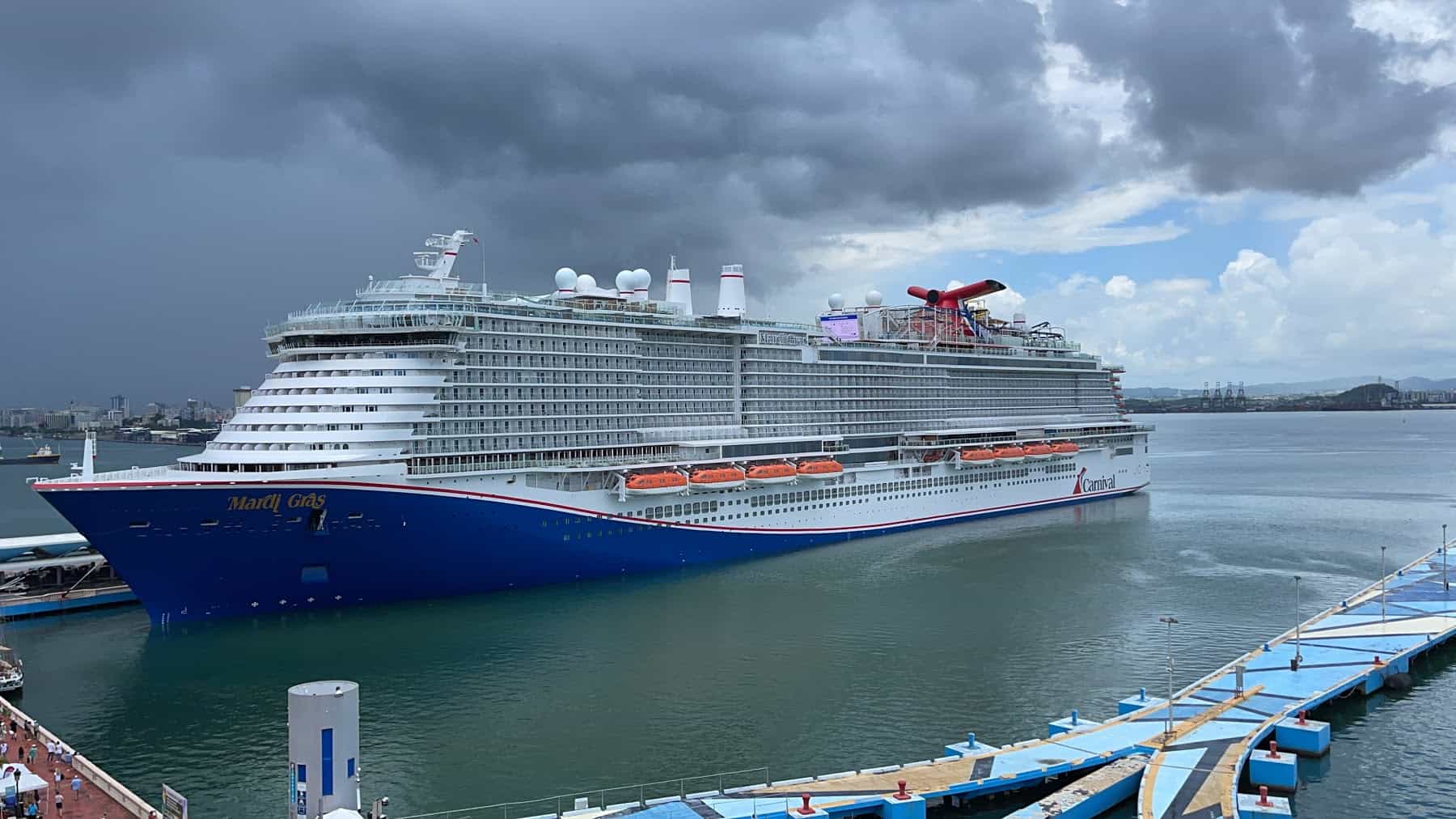
Cruising during hurricane season requires careful consideration of geographical factors. Since areas like the Caribbean and the Gulf of Mexico are more prone to hurricanes, it’s important to research your destination and choose a flexible cruise line for unexpected weather events.
What is Hurricane Season?
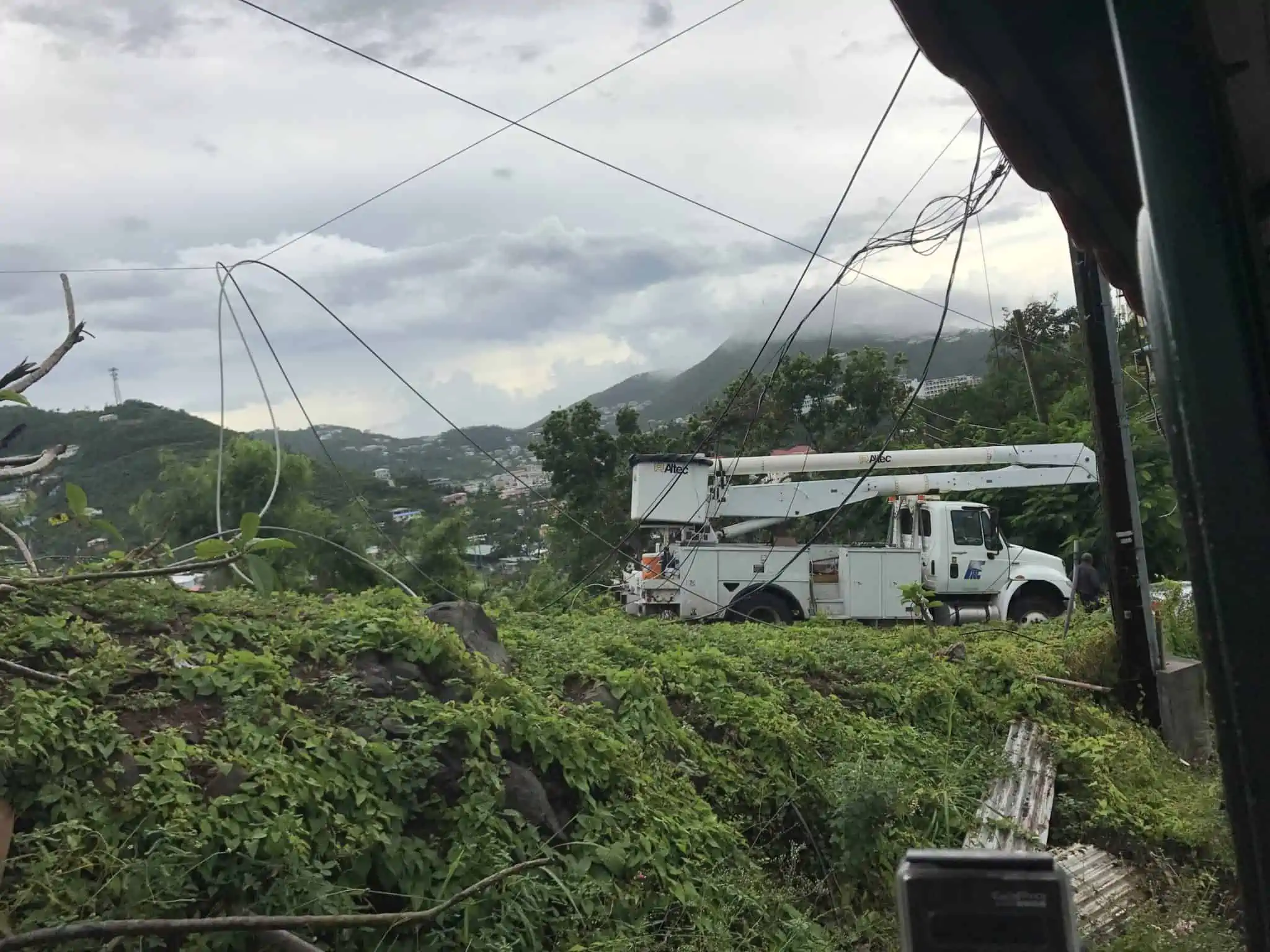
Hurricane season is the time of the year when tropical storms and hurricanes are most likely to occur because of mild weather.
The North Atlantic Hurricane Season
In the Atlantic, hurricane season runs from June 1 to November 30, with the season’s peak occurring in August and September.
During this period, the Atlantic Ocean is warm enough to fuel the formation of tropical storms and hurricanes. In the peak of hurricane season, the Caribbean and Gulf of Mexico water can be as warm as 90 degrees.
The Atlantic hurricane season typically produces 12 named storms, six of which become hurricanes and three of which become major hurricanes. Recently, it was reported that NOAA expects the hurricane season to be more active than normal.
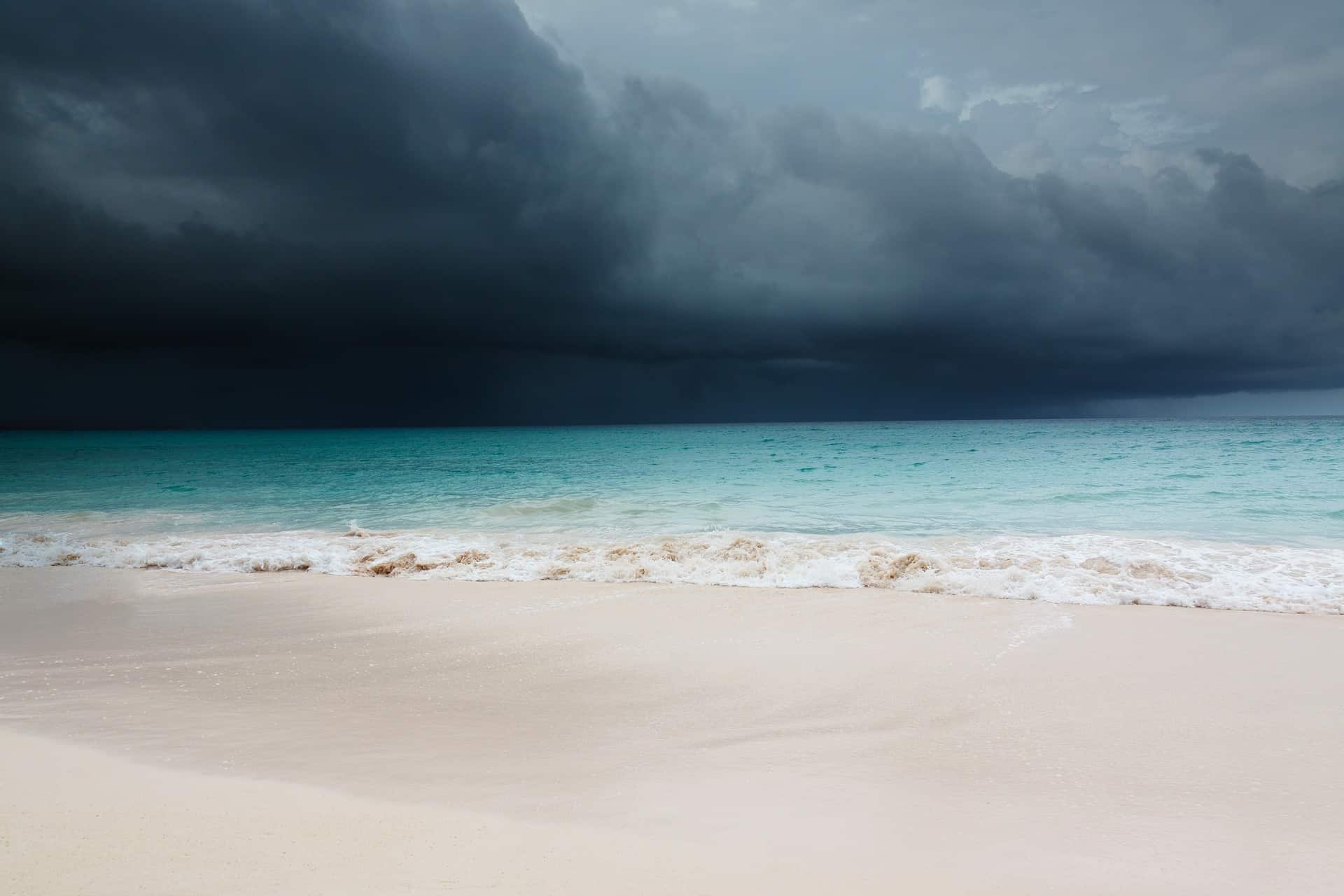
The number and intensity of storms can vary yearly, depending on factors such as ocean temperatures, wind patterns, and atmospheric conditions.
| Ten hurricanes formed during the 2023 Atlantic Season, and 20 were given names. |
When planning a cruise during hurricane season, it is essential to keep an eye on the weather and to be prepared for the possibility of itinerary changes or cancellations. Cruise lines have contingency plans for dealing with storms, but it is always a good idea to have travel insurance and be flexible with your plans.
Understanding hurricane season and the risks associated with cruising during this time can help you make informed decisions and stay safe while enjoying your vacation.
Cruising During Hurricane Season
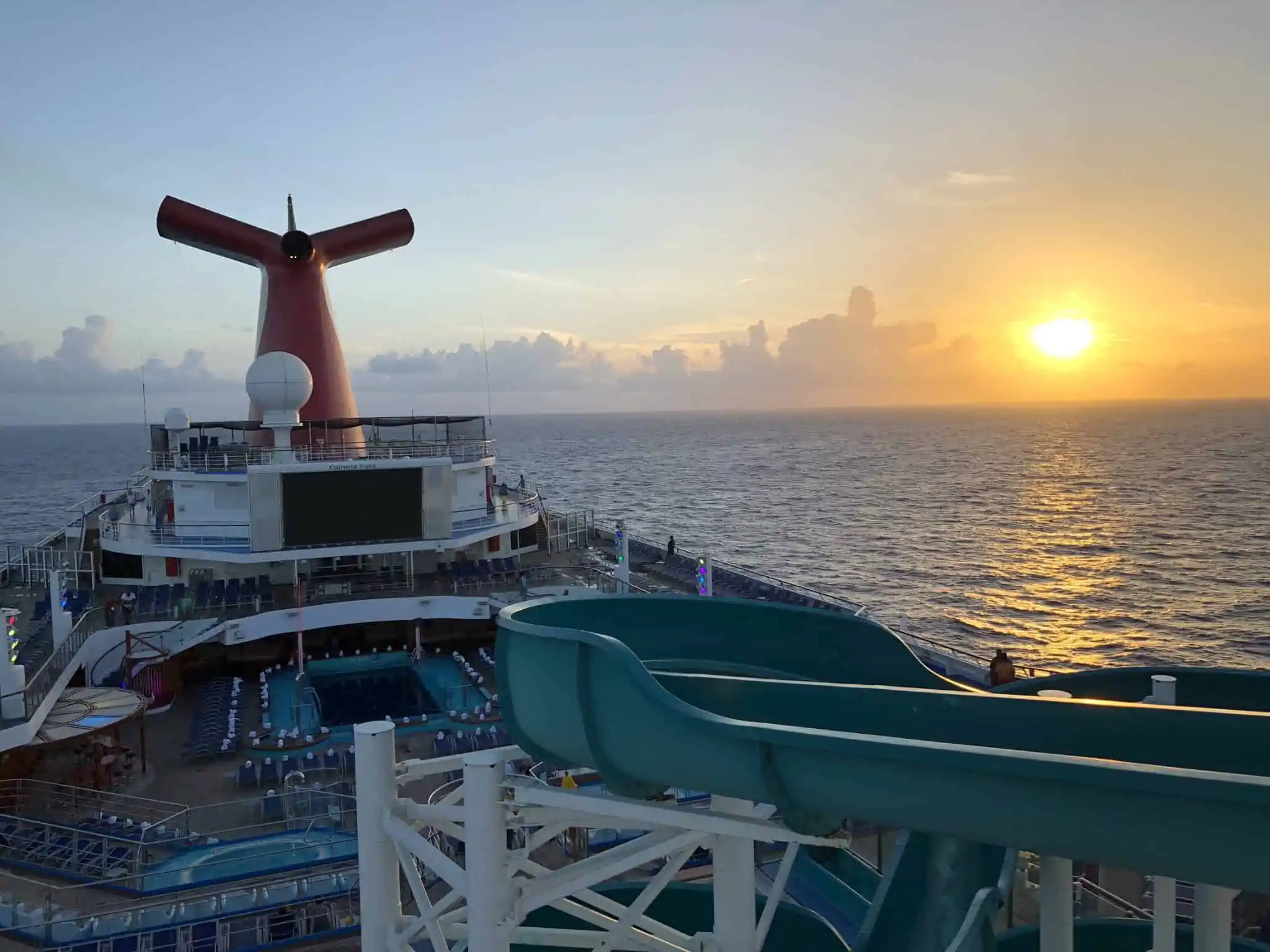
If you plan to cruise during hurricane season, it’s essential to monitor the weather forecasts before and during your trip. Cruise lines have established procedures for dealing with adverse weather conditions, and they typically monitor the weather closely to ensure the safety of their passengers and crew.
When booking a cruise during hurricane season, purchasing travel insurance that covers trip cancellations and interruptions due to weather-related issues is also a good idea. Some cruise lines may also offer its own insurance policies that provide additional coverage.
If a hurricane is forecasted to affect your itinerary, the cruise line will typically make necessary changes to the route to avoid the storm. This may include changing ports of call, altering the duration of the trip, or canceling the cruise altogether.
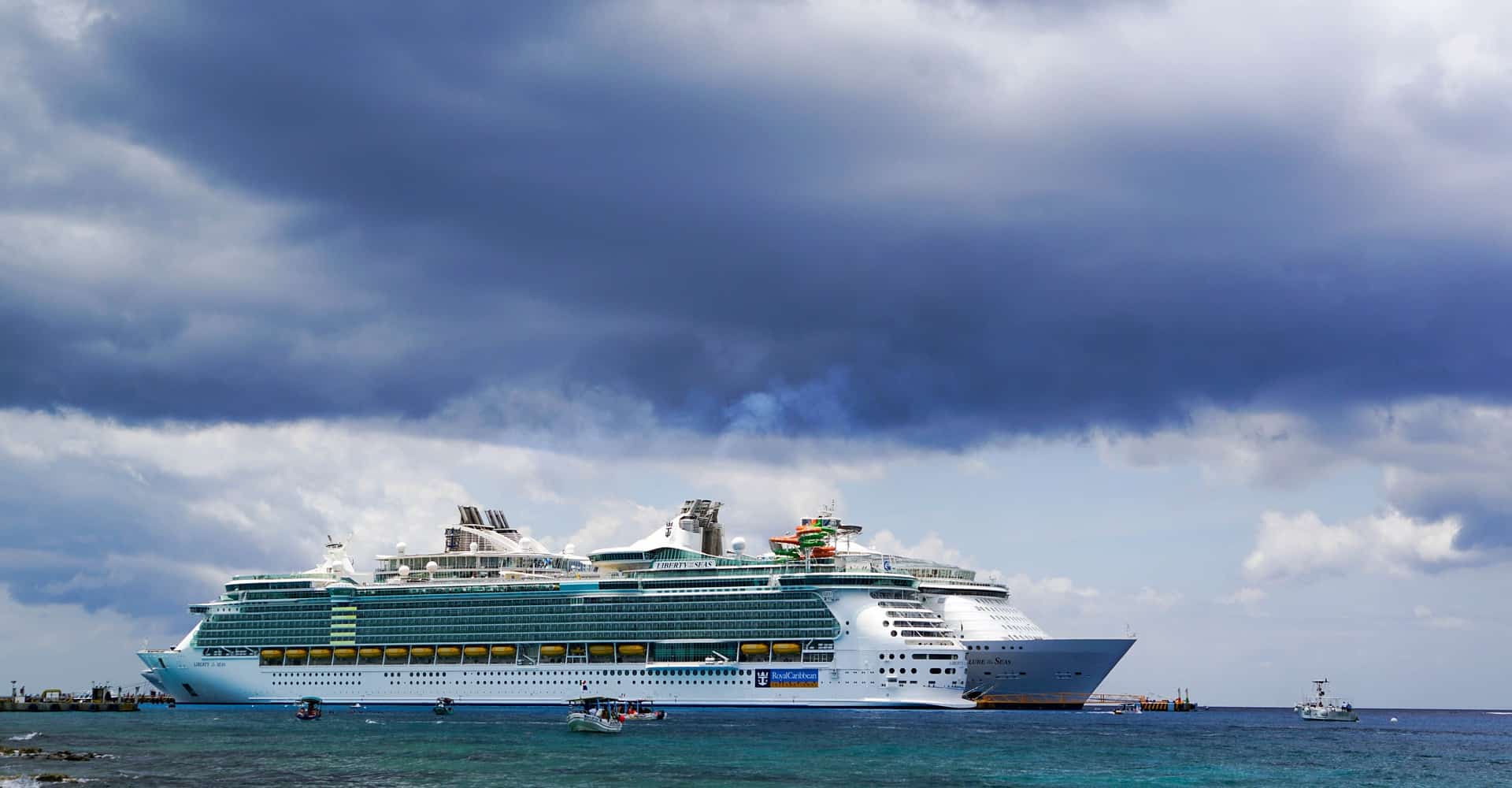
Suppose a hurricane is expected to impact your vacation directly. In that case, the cruise line directly will likely email you before embarkation day with details about the trip or ports of call changes.
Cruising during hurricane season can be an exciting adventure, but being well-prepared and aware of the risks is essential. By keeping an eye on the weather forecasts, purchasing travel insurance, and understanding the procedures of the cruise line, you can ensure a safe and enjoyable cruise vacation.
Geographical Considerations
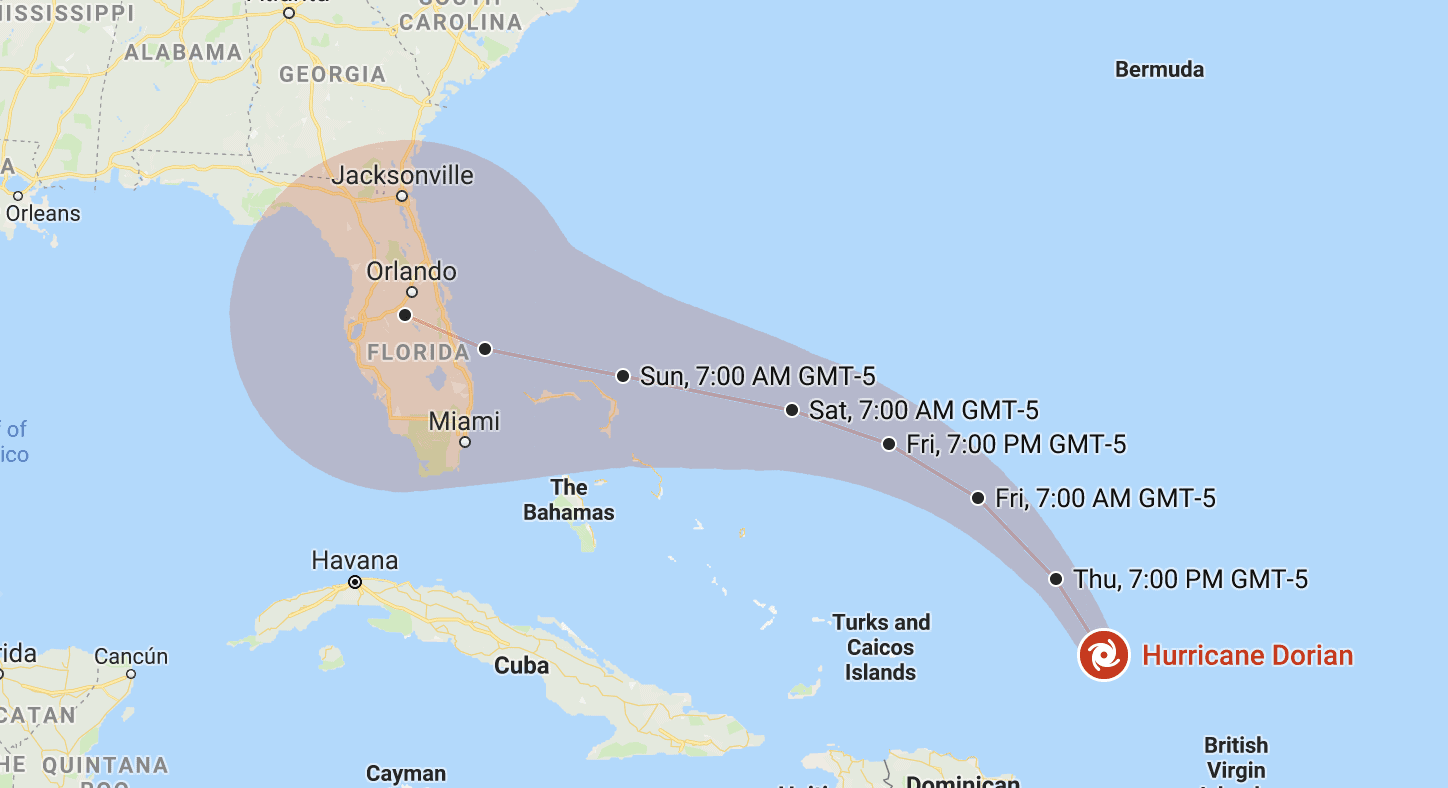
The Caribbean is a popular destination for cruises, but it is also one of the areas most impacted by hurricanes. The hurricane season in the Caribbean runs from June to November, with the peak season being from August to October.
When planning a Caribbean cruise during hurricane season, choose your itinerary carefully. Some areas of the Caribbean are more prone to hurricanes than others, and it is important to avoid these areas during hurricane season.
Western Caribbean cruises, which typically include destinations such as Jamaica, Grand Cayman, and Cozumel, are more likely to be affected by hurricanes than Eastern Caribbean cruises, which usually include destinations such as St. Thomas, St. Maarten, and Puerto Rico.
It is also important to note that storms can affect other areas of the Caribbean, such as the ABC islands (Aruba, Bonaire, and Curacao), the Bahamas, and Bermuda.
Safety Measures and Precautions
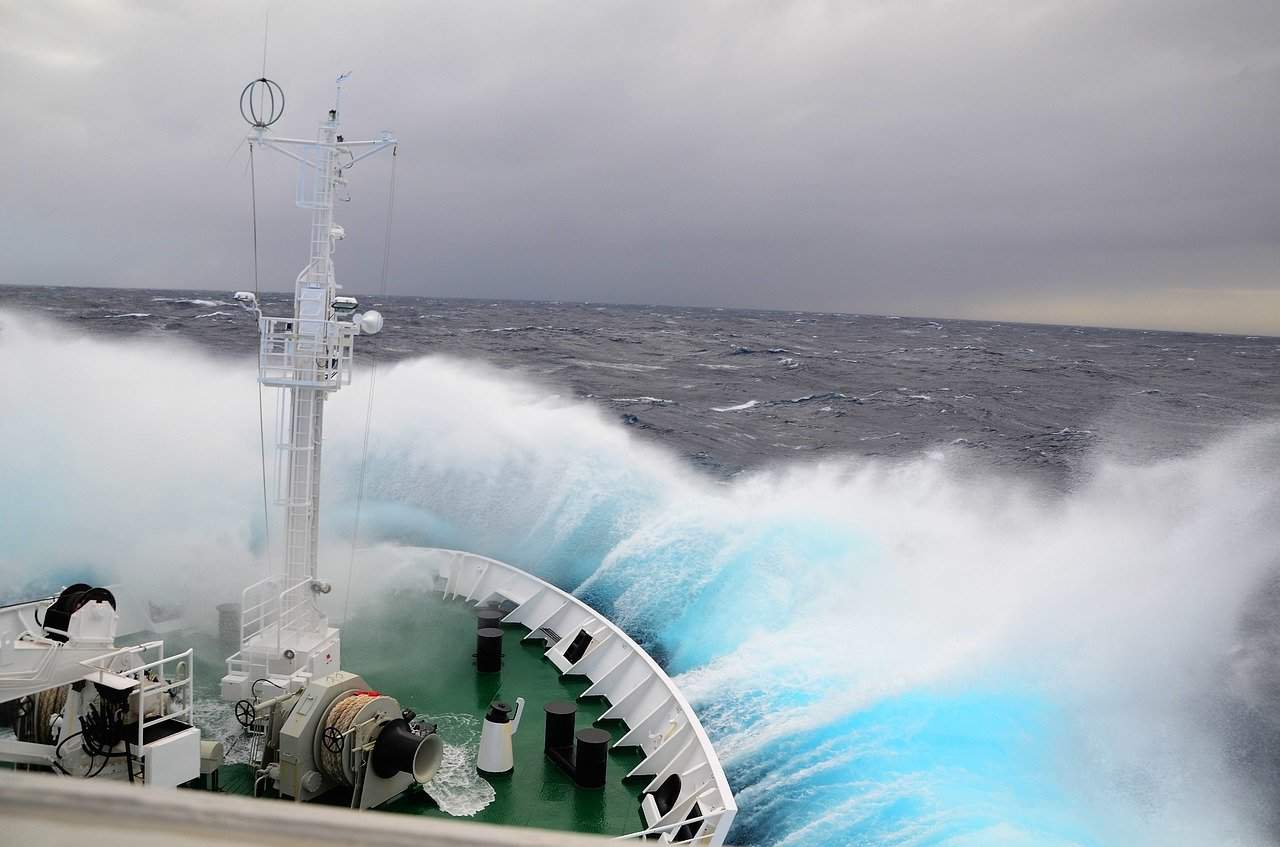
When cruising during hurricane season, safety is always the top priority. Fortunately, cruise ships are equipped with advanced technology and highly trained crews to ensure the safety of all onboard.
One of the most critical safety measures is the captain’s decision-making process. Captains are trained to monitor weather conditions and make informed decisions about the ship’s route and itinerary. For example, if a hurricane is predicted to be in the ship’s path, the captain may alter the course or cancel the trip.
Cruise ships also have advanced safety technology, including radar, sonar, and satellite communication systems. These tools enable the crew to monitor weather conditions and communicate with other ships and emergency services if necessary.
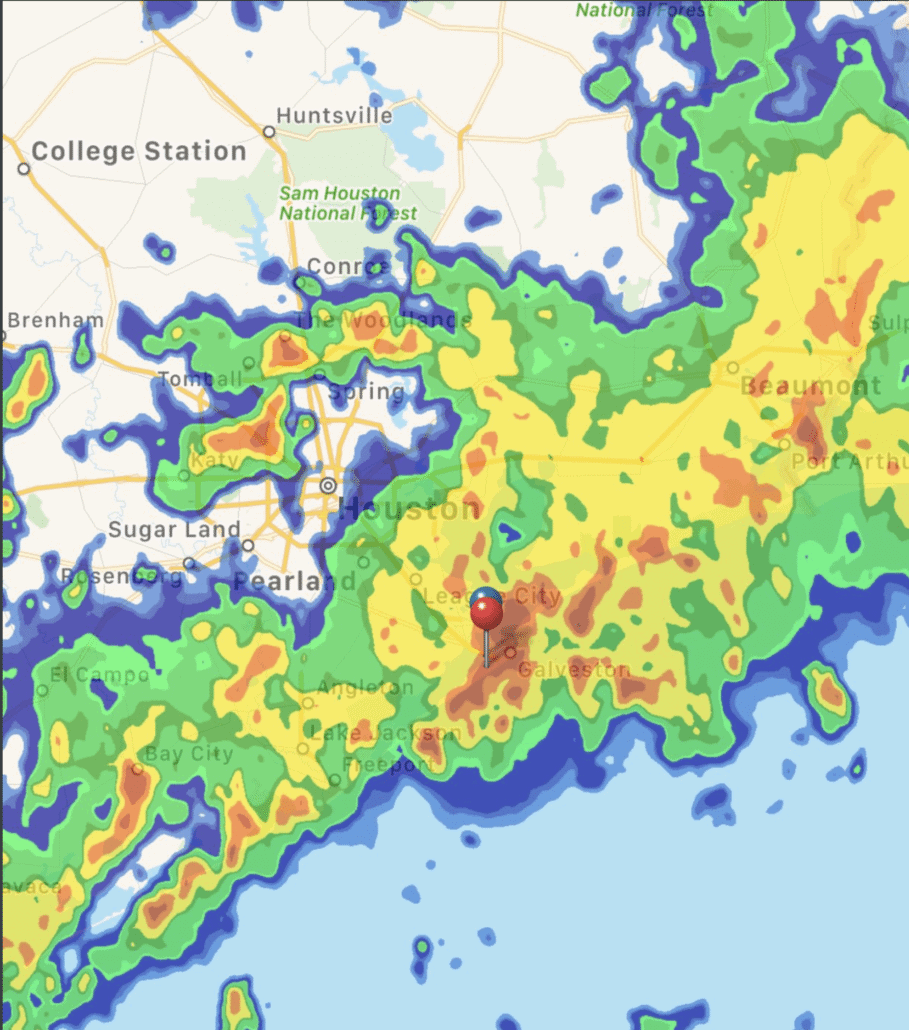
Cruise ships have extensive emergency procedures in place in the event of an emergency. All passengers must participate in a safety drill at the beginning of the trip, which includes instructions on evacuating the ship in an emergency. Crew members are also trained to handle various emergencies, from medical emergencies to fires and floods.
Passengers can take additional precautions to ensure their safety during hurricane season. It is recommended that they pack a basic emergency kit, including a flashlight, batteries, and a first aid kit. They should also stay informed about weather conditions and follow the captain’s instructions.
The Benefits of Cruising During Hurricane Season
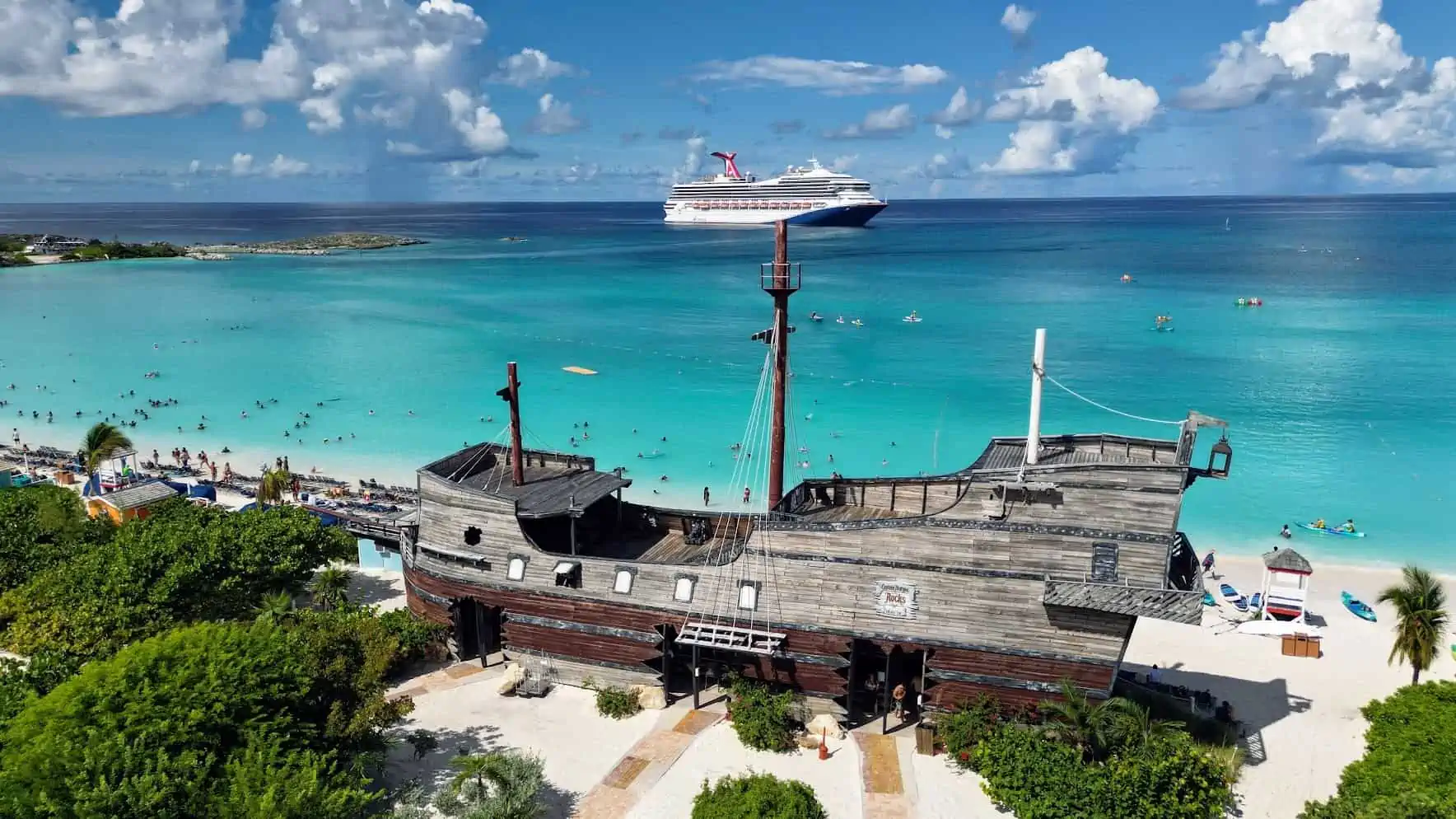
Before we go one step further, it’s important to note that planning a cruise during hurricane season can be a gamble. It also comes with several risks, which we’ll discuss in the next section. But definite pluses make this a time of year worth considering.
For one thing, the latter part of the hurricane season falls when most kids are back in school. You still have the tail-end of summer, meaning cruising out of ports like New York City in still-gorgeous weather but with fewer families.
Given that many clans try to fit four or five people into a stateroom, the fewer families on any sailing, the lower the overall number of people aboard. And that means more room for you.
Impact on Itineraries
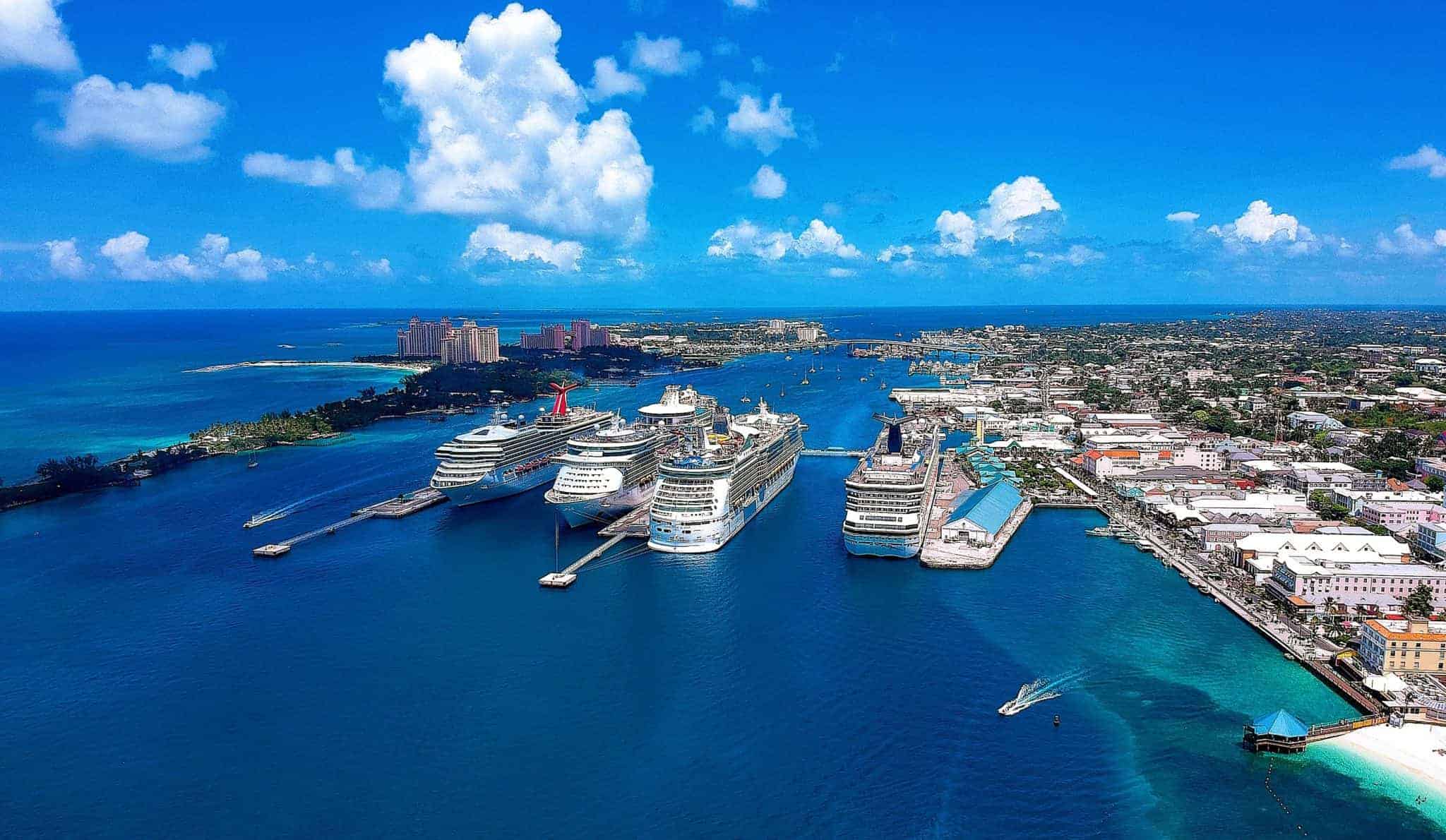
Cruising during hurricane season can significantly impact itineraries, causing port stops, missed ports, and ship rerouting changes. It is essential for passengers to understand the potential itinerary changes that may occur due to hurricanes and to be prepared for such changes.
Possible Itinerary Changes
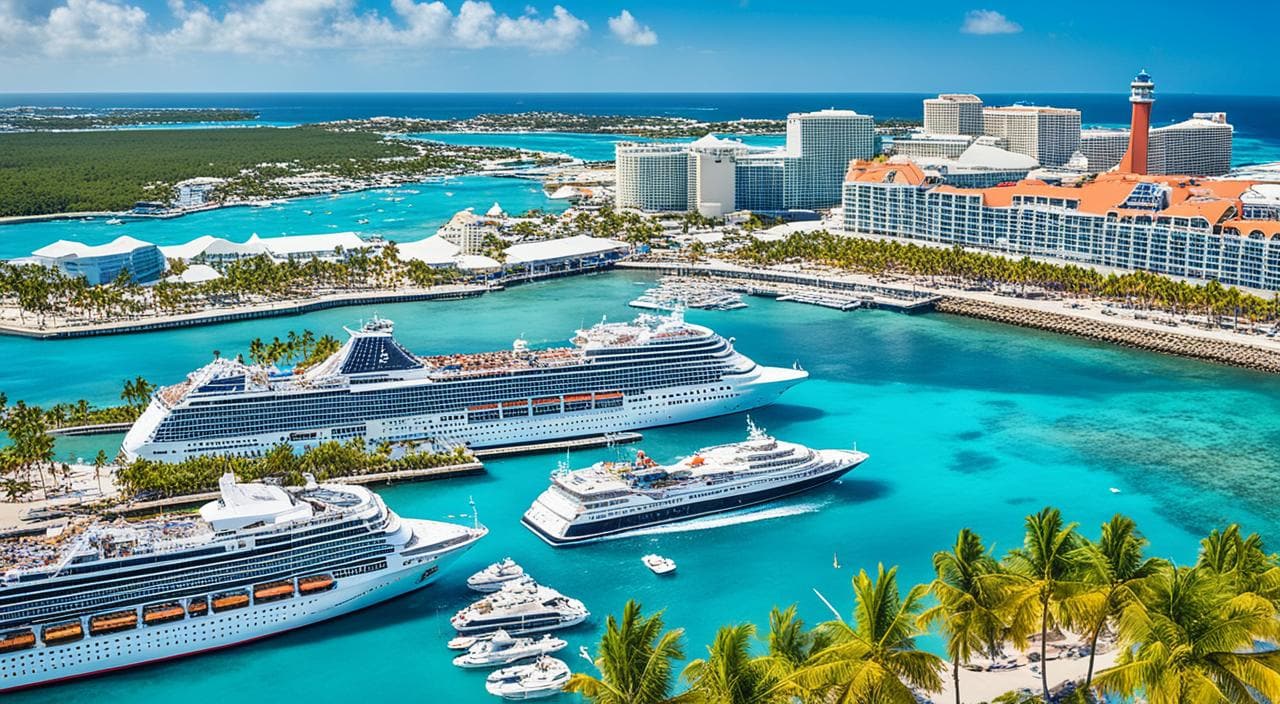
Cruise lines have established procedures to monitor weather conditions and make necessary itinerary changes to ensure the safety of passengers and crew. If a hurricane is forecasted to impact a port of call, the cruise line may cancel the port stop and replace it with an alternative port.
In some cases, the ship may need to reroute to avoid the hurricane entirely, resulting in a change of itinerary. These changes may occur before embarkation day or while sailing on your cruise.
Missed Ports and Rerouting
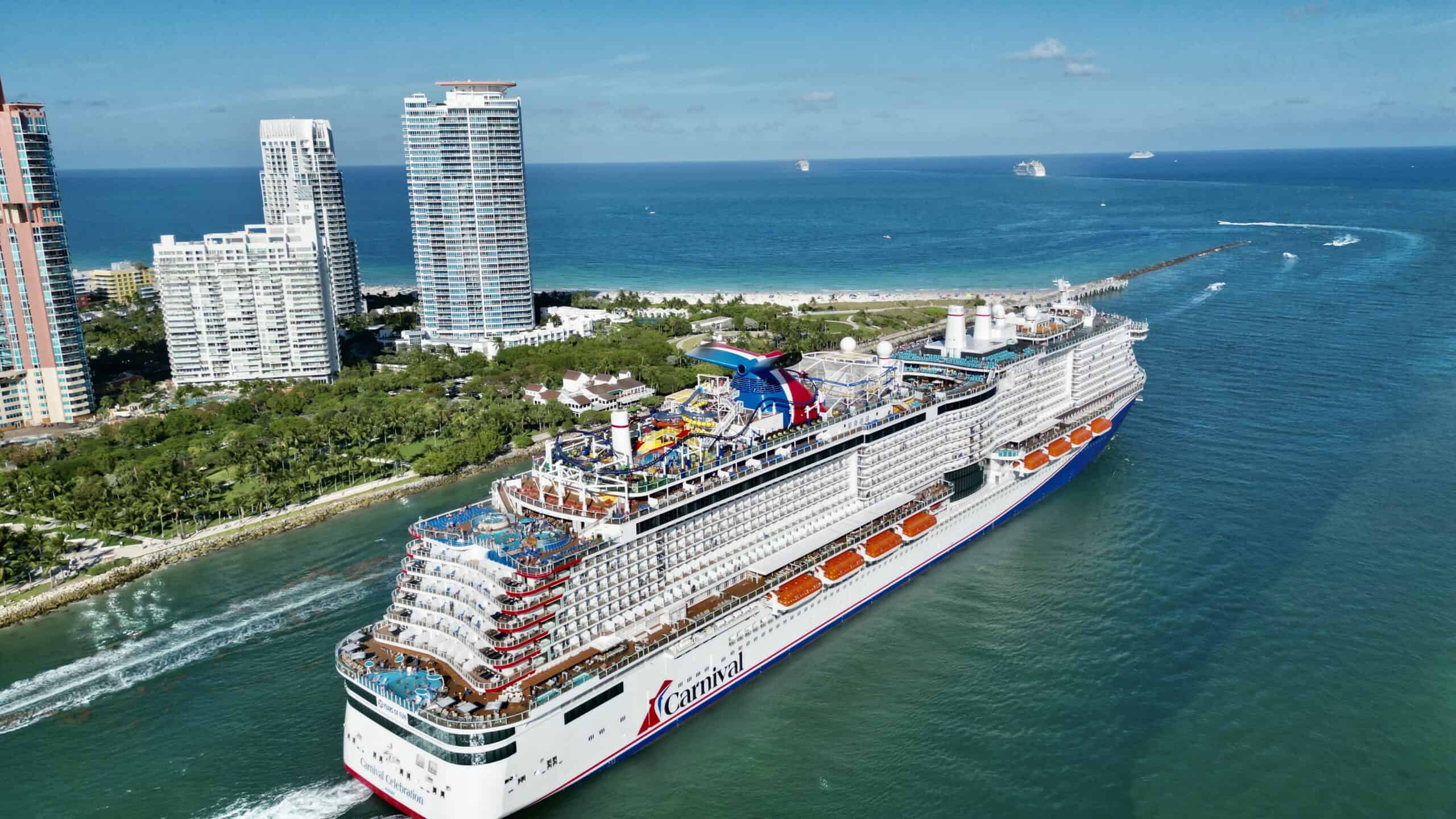
Cruise lines typically offer compensation in the form of onboard credit or a refund of the port fees in case of a missed port. Passengers may also participate in an alternative activity onboard the ship. If the ship needs to reroute, the cruise line will typically provide updates and keep passengers informed of any changes to the itinerary.
Passengers must understand that itinerary changes can occur anytime during the cruise, even after the ship departs from its home port. Passengers should remain flexible and be prepared for potential changes to their itinerary due to hurricanes.
How to Deal with Delays and Cancellations
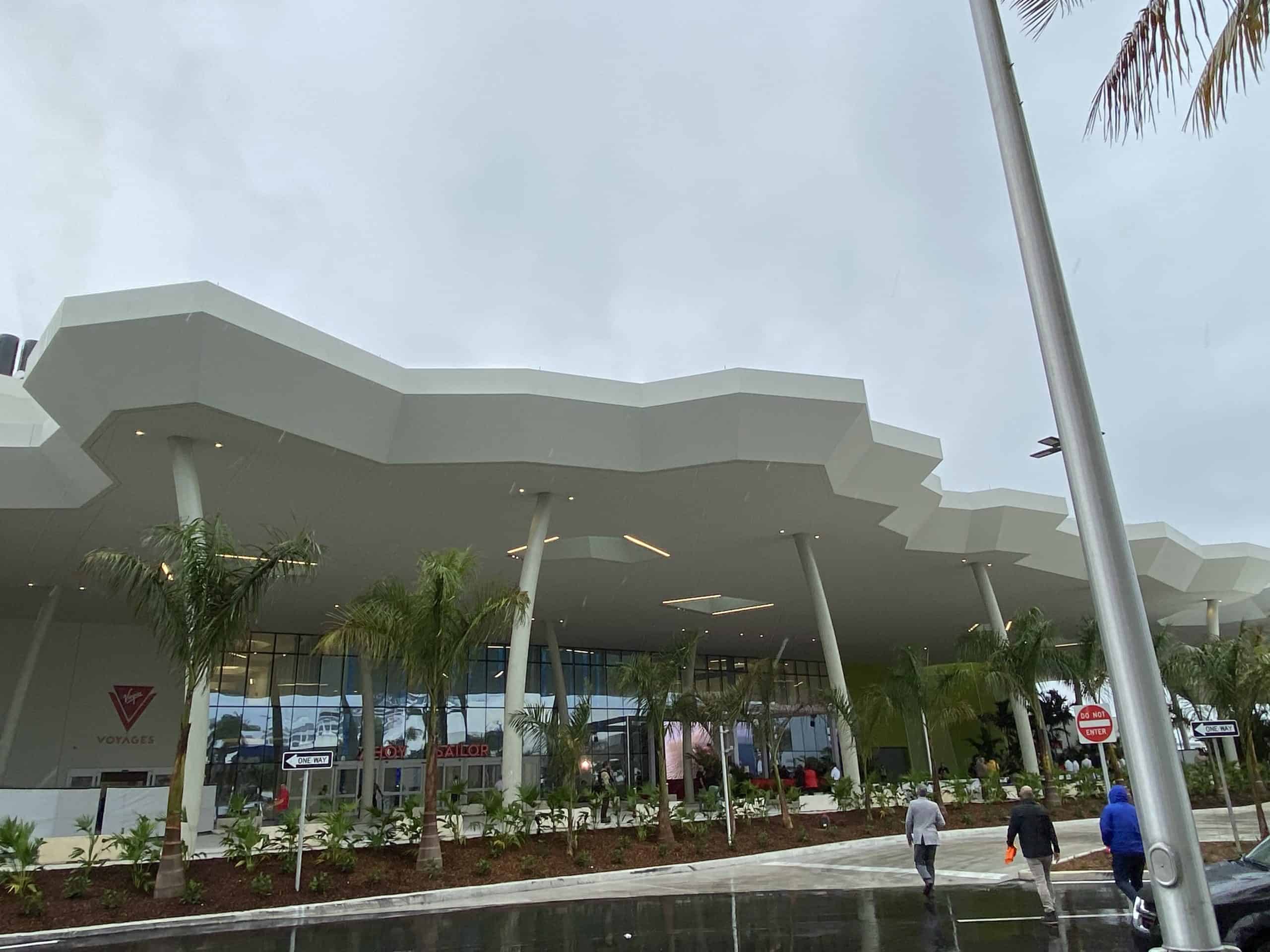
When cruising during hurricane season, it’s essential to know that delays and cancellations are possible. The safety of passengers and crew is the top priority, and cruise lines will take necessary precautions to avoid any potential danger.
If a storm or hurricane is approaching, the cruise line may alter the itinerary or even cancel the cruise altogether. In this case, passengers will typically be notified as soon as possible and given the option to reschedule or receive a refund.
It’s important to note that cruise lines are not responsible for any additional costs incurred due to delayed or canceled cruises, such as flights or hotels. Passengers should always purchase travel insurance to cover any unexpected expenses.
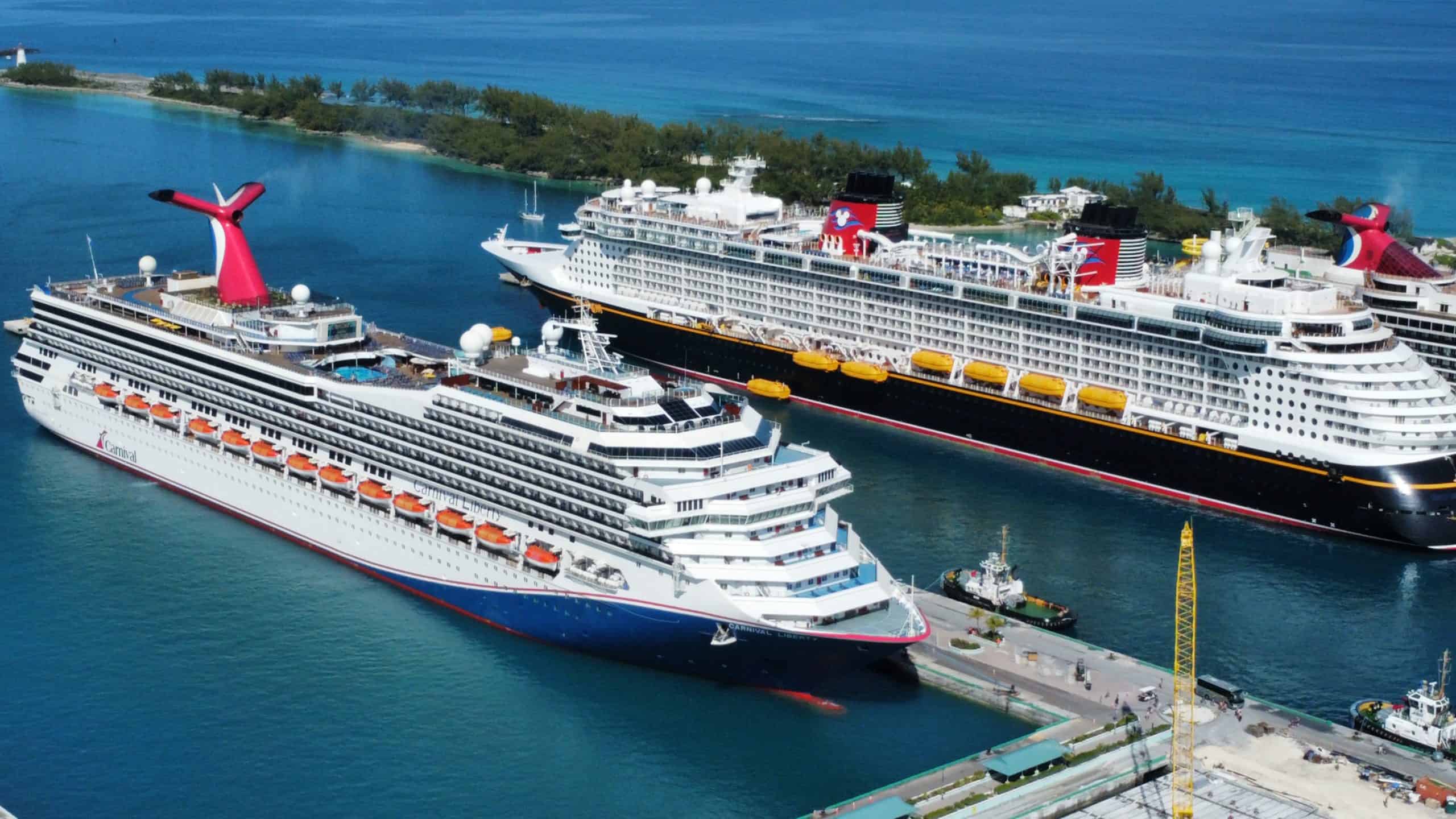
In the event of a missed port due to weather conditions, the cruise line will typically offer compensation. This may include a refund of port fees or a credit towards a future cruise.
It’s important to review the cruise contract and reservation details carefully to understand the policies and procedures in case of delays or cancellations. By being prepared and informed, passengers can confidently navigate any unexpected situations.
It’s a good idea to print out the Ticket Contract before you accept the terms and conditions for your cruise.
Travel Insurance and Compensation
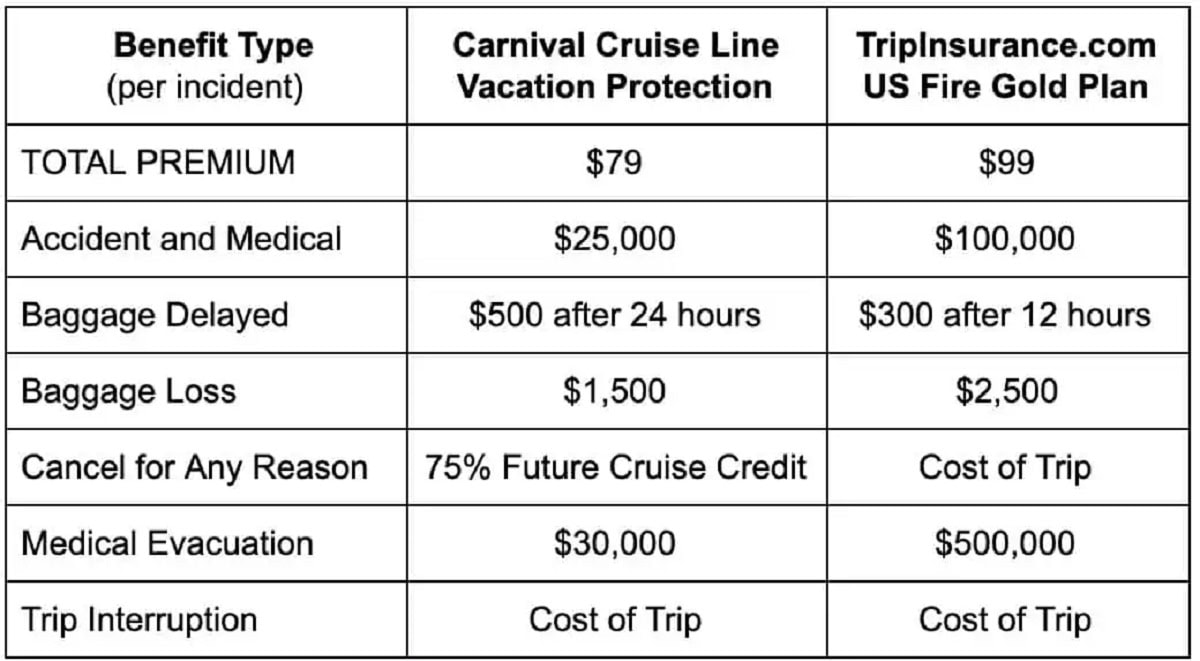
Cruising during hurricane season can be risky, and travelers are often concerned about what will happen if their cruise is canceled or delayed due to weather conditions. Fortunately, many cruise lines offer insurance and compensation options to protect travelers from unexpected events.
Travel insurance is one of the most important things to consider when booking a cruise during hurricane season.
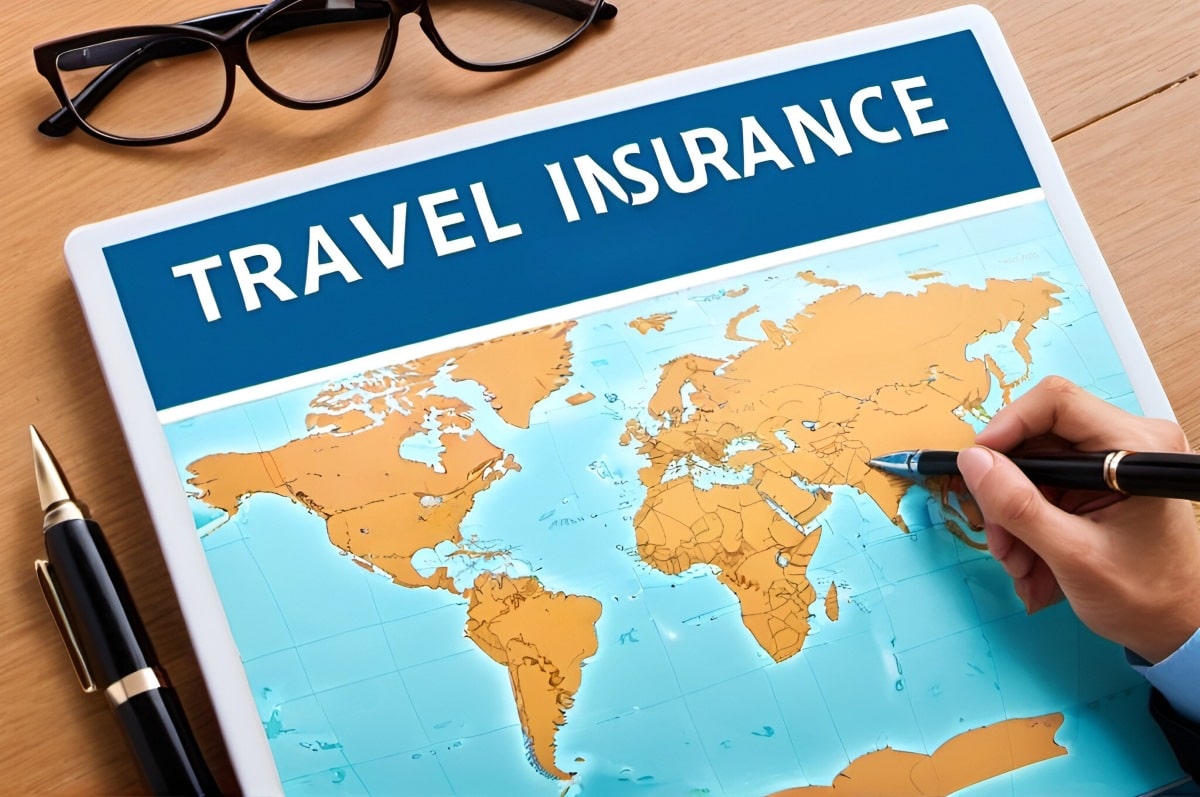
Travel insurance can cover various issues, such as trip cancellations, medical emergencies, and lost or stolen luggage. In case of a cruise cancellation due to weather or other reasons, most cruise lines offer a full refund or rescheduling option.
However, outside costs of the cruise, such as non-refundable hotel rooms or airfare with hefty change fees and booked tours or shore excursions outside of the cruise line, are not covered.
Buying insurance during hurricane season is important, and it should be done promptly.
Why? Two reasons.
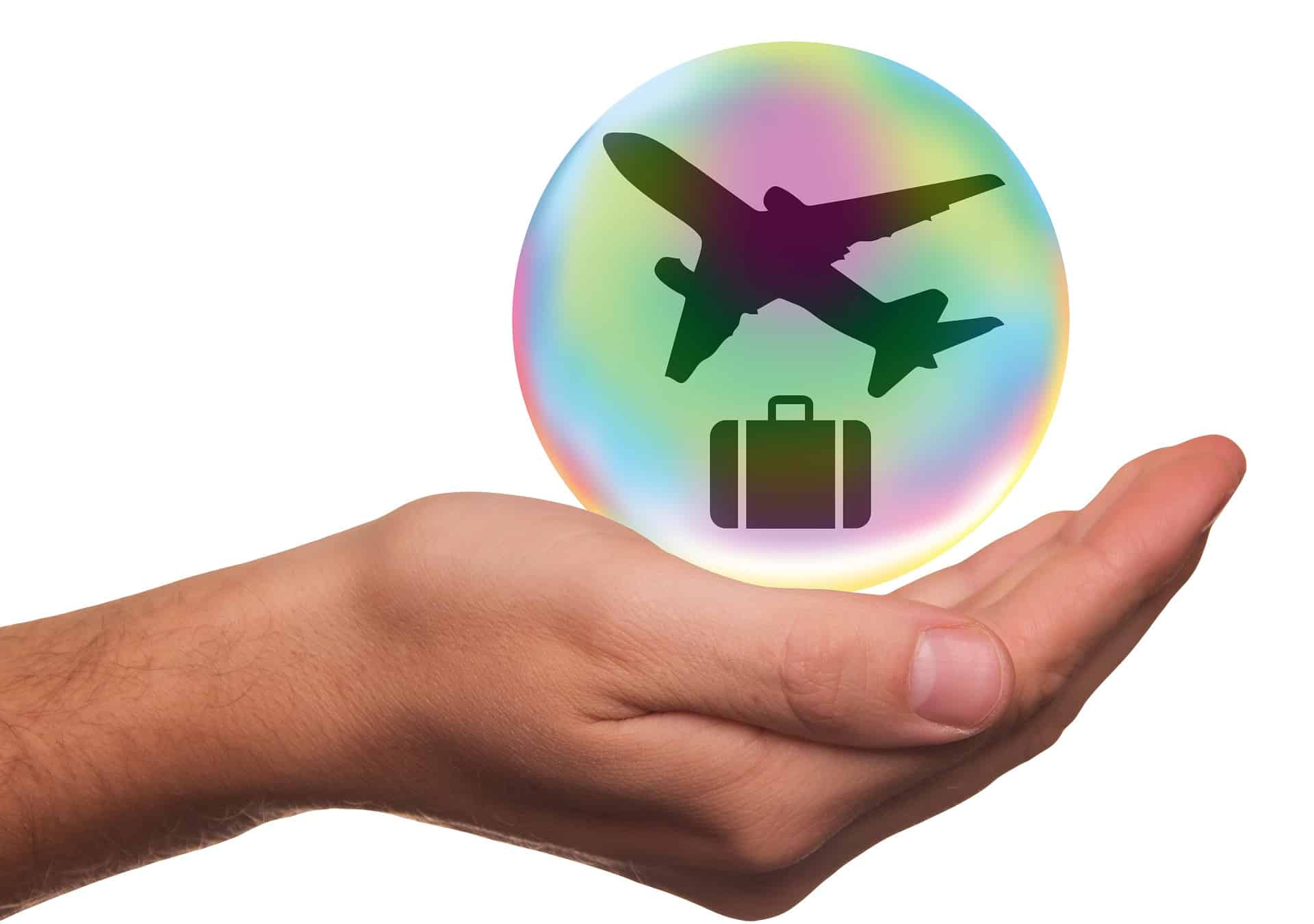
First, if you want a policy with a Cancel For Any Reason (CFAR) clause (which we highly recommend), it must be purchased within two weeks of the initial deposit.
Secondly, to make any hurricane-related claim, the policy has to have been purchased before the storm is named.
In other words, you cannot wait until the last minute to learn about the hurricane, buy an insurance policy, and attempt to file a claim.
It’s essential to carefully read the cruise line’s ticket contract and the travel insurance policy’s explanation of benefits before agreeing to the terms and conditions.
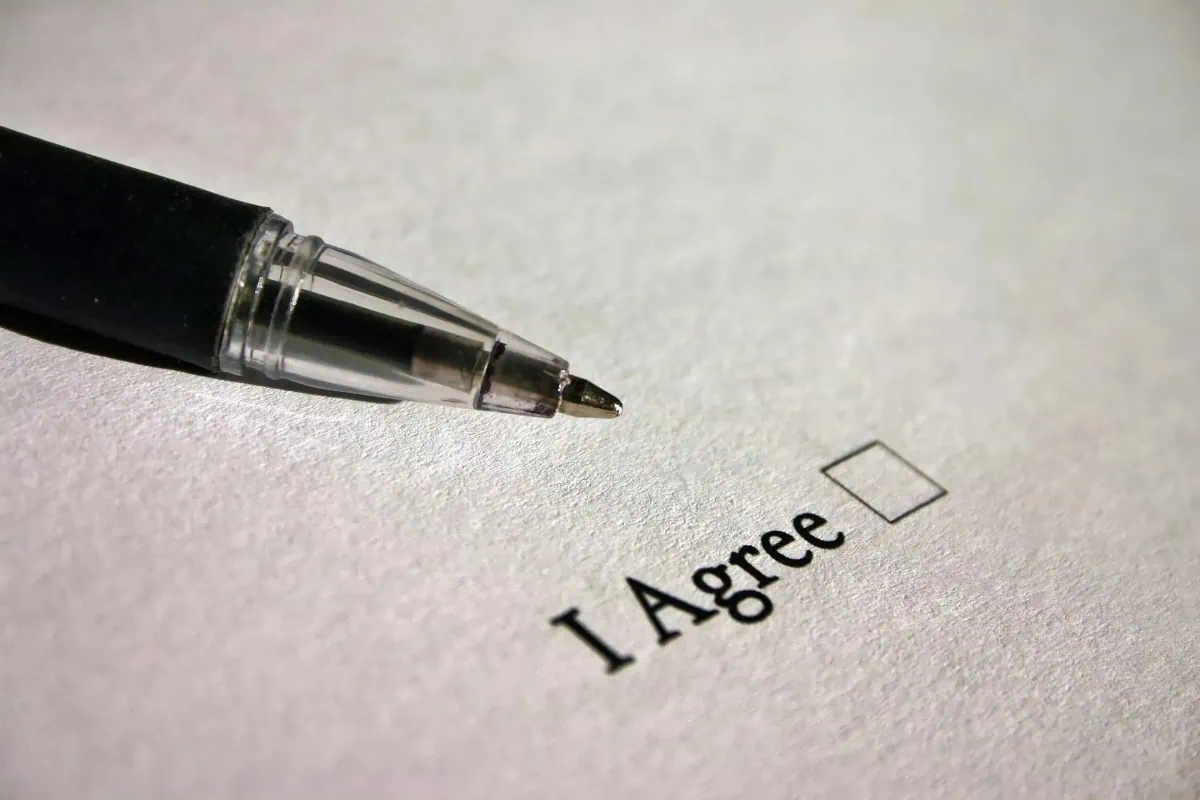
Some cruise lines may also offer compensation for inconveniences caused by weather-related delays or cancellations, such as additional hotel stays or transportation costs. It’s important to check with the cruise line to see what compensation options are available.
Port taxes and fees are another consideration when booking a cruise during hurricane season. If a port is closed due to weather conditions, cruise lines may be required to refund these fees to travelers.
Travelers should also watch for special offers and lower prices for cruising during hurricane season. While booking a cruise at a lower price may be tempting, it’s important to consider the potential risks and understand the cruise line’s cancellation policy.
Tips for Cruising During Hurricane Season
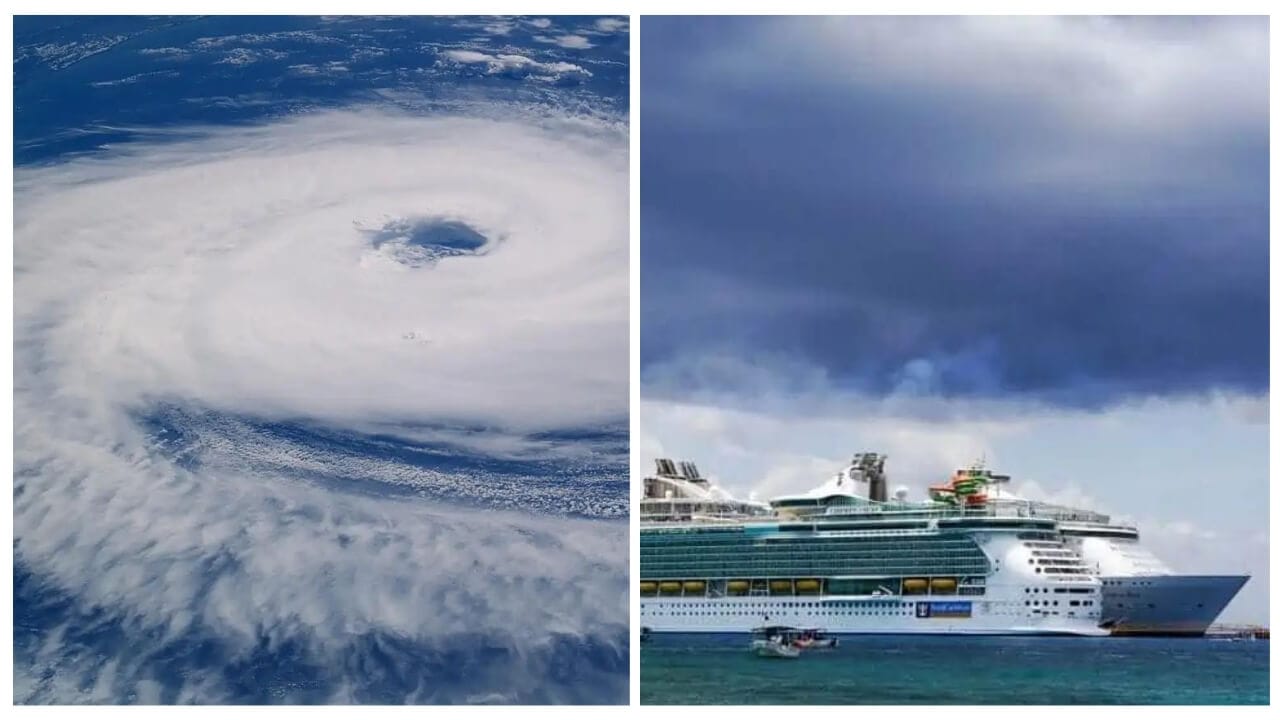
Cruising during hurricane season can be daunting, but it can still be a great vacation with the proper preparation and attitude.
Here are some tips to help you navigate the potential challenges of cruising during hurricane season:
1. Choose Your Destination Wisely
When planning a cruise during hurricane season, choosing your destination wisely is important. Some areas are more prone to hurricanes than others, so do your research and select a destination that is less likely to be affected.
For example, cruises to Alaska or Europe are less likely to be impacted by hurricanes than cruises to the Caribbean or the Gulf of Mexico.
2. Be Prepared for Seasickness
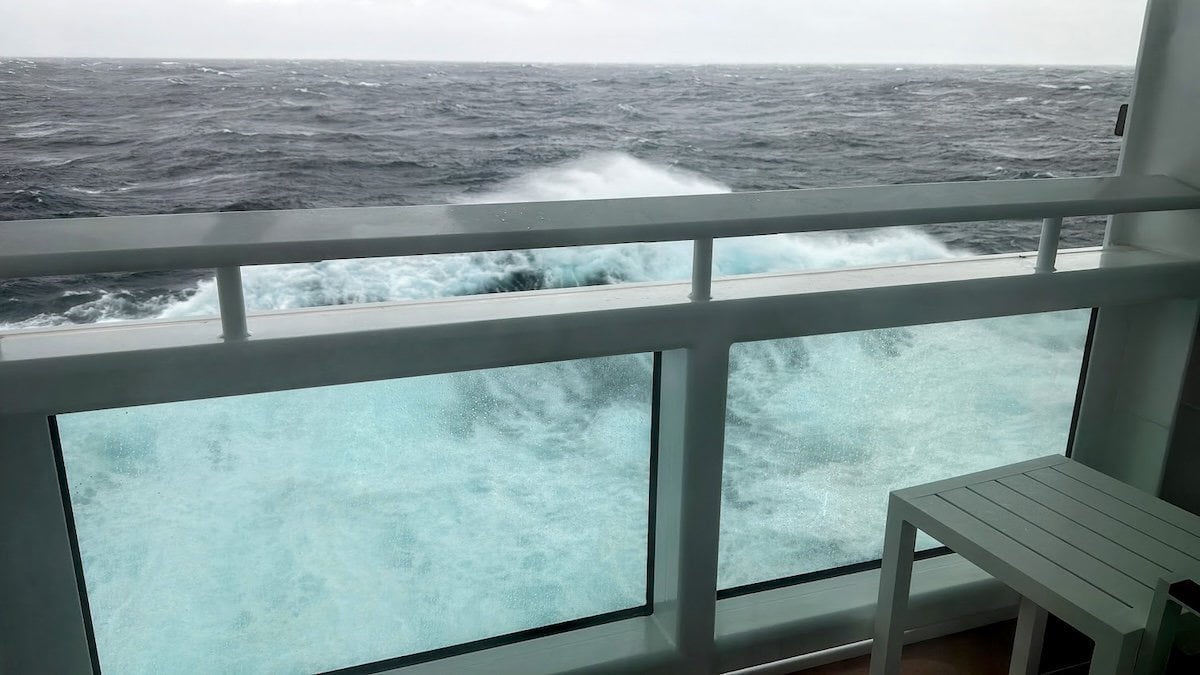
The seas can be rough during hurricane season, so preparing for seasickness on a cruise is important. Bring any necessary medication or remedies, such as ginger or motion sickness bands, and consider booking a cabin in the middle of the ship, where the motion is less noticeable.
3. Have the Right Attitude
When cruising during hurricane season, having the right attitude is essential. Understand that the weather is out of your control and that the ship’s crew is doing everything possible to keep you safe. Stay positive and enjoy the other aspects of your cruise, such as the onboard activities and entertainment.
4. Have a Backup Plan for Travel
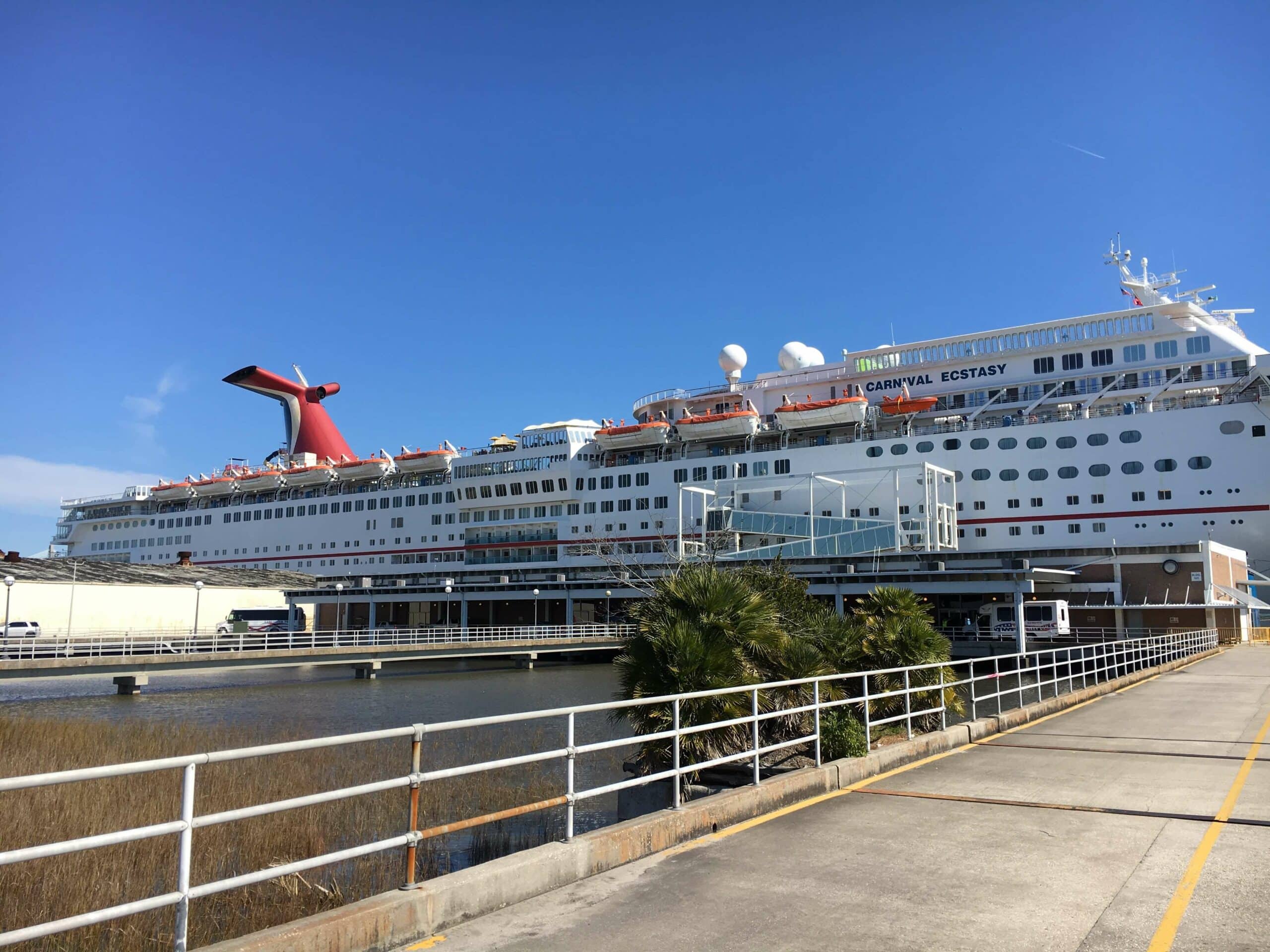
Be flexible. If a hurricane does impact your cruise, it’s essential to have a backup plan for travel.
Purchase travel insurance covering weather-related cancellations and delays, and have a plan for alternate travel arrangements, such as flights or hotels.
Following these tips and being prepared, you can still enjoy a fantastic cruise during hurricane season.
Frequently Asked Questions
What is the Atlantic hurricane season for cruises?
Hurricane season for cruises typically runs from June 1 to November 30. During this time, tropical storms and hurricanes are more likely to occur in the Caribbean, Gulf of Mexico, and Atlantic Ocean.
Can cruise ships go around hurricanes?
Cruise ships can change their itinerary and route to avoid hurricanes. They can also speed up or slow down to stay ahead of or behind a storm. However, it’s important to note that rerouting a ship can cause changes in the ports of call and itinerary.
What happens on a cruise if a hurricane is coming?
If a hurricane is approaching, the captain and crew will closely monitor the storm’s path and adjust the ship’s route as necessary. Passengers may experience changes in the itinerary, such as skipping ports of call or spending more time at sea. The ship may also encounter rough seas and high winds, causing some discomfort for passengers.
Is it safe to cruise during hurricane season?
Cruising during hurricane season can be safe, but knowing the risks and potential changes to the itinerary is important. Cruise lines have extensive safety protocols in place to ensure the safety of passengers and crew during storms.
How often do cruise ships get caught in storms?
While cruise ships do their best to avoid storms, they can get caught in bad weather. However, this is relatively rare; cruise lines have protocols to keep passengers safe during these situations.
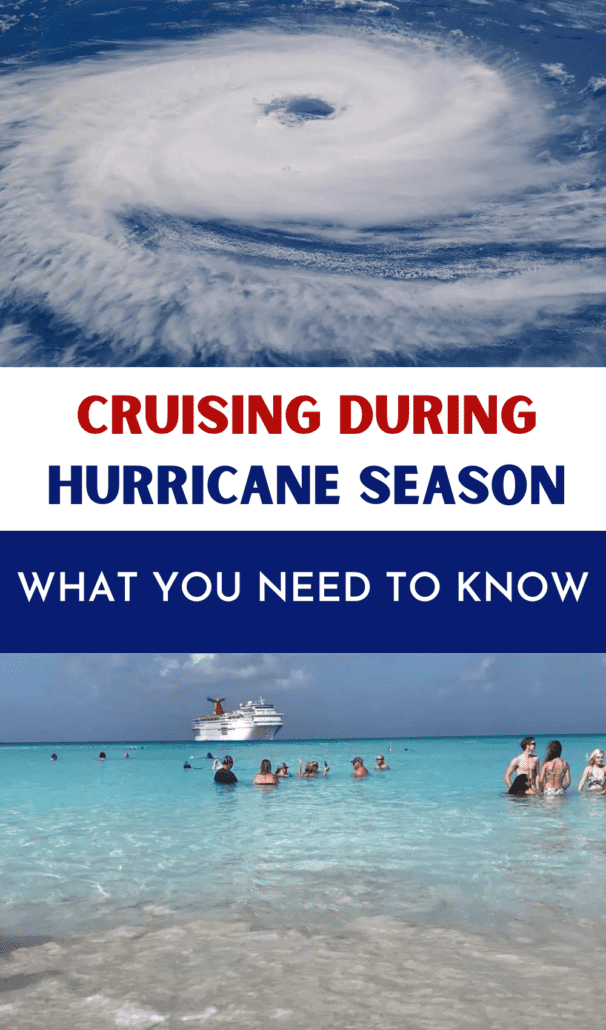
This article was original published in 2019 and updated in 2024.



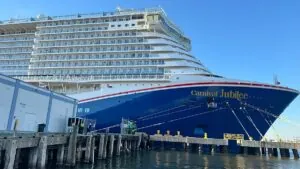
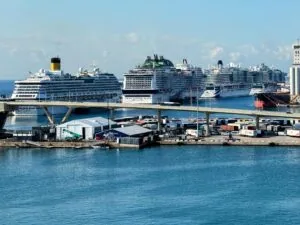
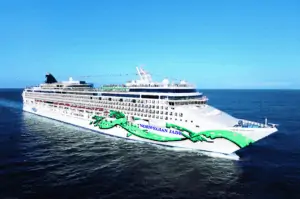
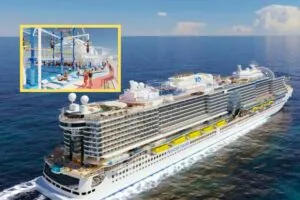
![First Time Cruise to Europe + Cruise News [Podcast]](jpg/1681310099-msc-world-europa-maiden-call-genoa-italy-1-300x206.jpg)
